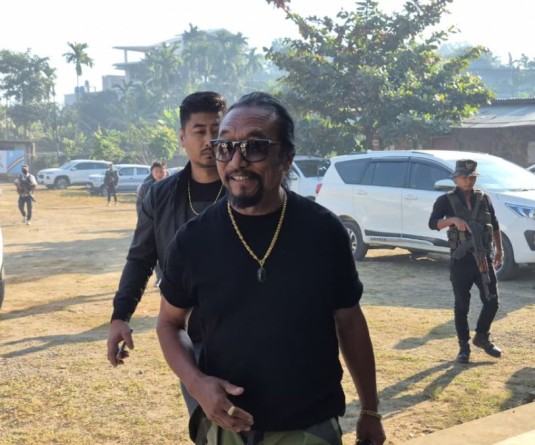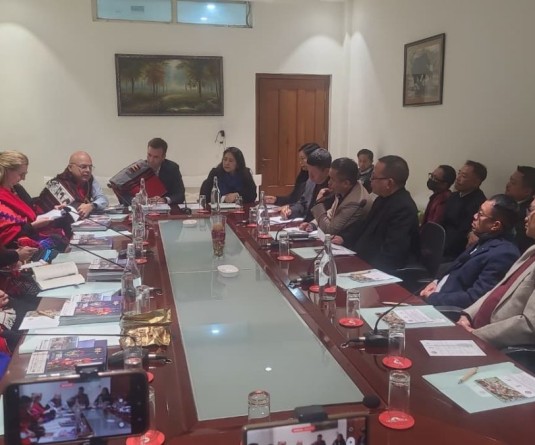
Dimapur, June 29 (MExN): The Dimapur District Legal Services Authority (DDLSA) inaugurated a fourth Legal Aid Clinic today at Dimapur district’s Kuhoboto sub-division.
“This Legal Aid Clinic has been opened to provide free-of-cost legal aid to people with an income of Rs. 1 Lakh or below,” stated Dimapur District and Sessions Judge S. Hukato Swu, Secretary of DDLSA and chief guest for its inaugural program held at Kuhoboto Town Hall. Three other such clinics have been set up at Central Jail, Sub Jail and Niuland.
The ‘Clinic’ at Kuhoboto is meant for a cluster of 24 villages in the area. It will engage two paralegals to disseminate information on “socially benevolent legislations” like the Right to Information (RTI), Motor Vehicles Act, Senior Citizens Act, etc. It will then help poor people to get an advocate through the state, who will pursue their case free of cost.
“Our target is to reach the unreached so that no one suffers injustice for reasons of poverty. We want to reach out to the rural areas where people cannot easily access justice,” explained Swu, who spoke to the audience in Sema. Both male and female participants attended the program in equal numbers.
Speaking on the occasion was Dimapur Chief Judicial Magistrate M.T. (Azi) Therieh, also the Deputy Secretary of DDLSA. “Whether we like it or not, till we get an alternative arrangement or solution, Article 371 (a) will have to apply. Without this, our village councils cannot derive power,” she said, touching upon the Nagaland Village Council Act.
Therieh highlighted that the village authority’s functions are executive as well as judicial, which is why their powers have to be exercised with restraint. “Judicial powers of the village authority are clearly defined in law. If there is a murder or rape in your village, an FIR should be filed at the nearest police station, not taken to a customary court. The village authority can take up cases of theft, trespass or other mischief but its power cannot be exerted on ALL cases, nor does it have the authority to imprison anyone,” she clarified, while challenging the audience to think about the relevance of customary laws in today’s changing circumstance.
On executive powers (distribution of central funds for development works) of the village council, Therieh said that the village council should oversee the proper distribution and use of central funds, irrespective of political affiliation. “To make a strong village, a village council needs to be strong. If funds correspond to proper development of the village, everyone will gain,” she reiterated.
Other advocates present spoke on RTI, Alternative Dispute Resolution (ADR) and Right of an arrested person. This was followed by a question-answer session, addressed by Swu. A booklet titled ‘Lesson in Law for Students’ published by the Nagaland State Legal Services Authority was distributed to those present.






